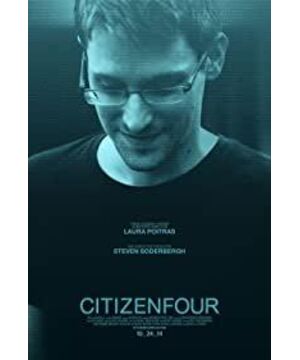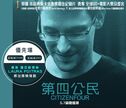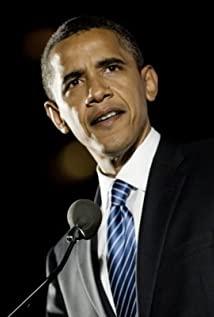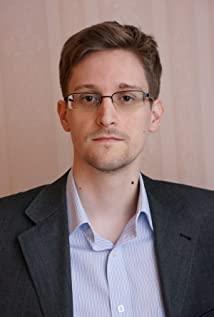Recently, artist James Bridle imitated the large-scale citizen surveillance model of the National Security Agency (NSA) and created an online art project for the Southbank Centre in London-Citizen EX (citizen-ex.com) . On this website, you can download a software to embed in the browser of your computer. It will calculate and summarize the web pages you browse, and display your "nationality" or citizenship on the Internet. Obviously, this is different from traditional citizenship based on factors such as place of birth, parent's nationality or blood relationship; the result displayed by this software is a new form of "algorithmic citizenship" (algorithmic citizenship). It collects, calculates and summarizes real-time data based on the actual location of the domain name you browse on the web to tell you which country you are on the Internet. Most people in the world have only one nationality. However, the citizenship calculated by this network is not as single and fixed as the traditional nationality. Check the results at different times, and your citizenship is different-it has been changing and rewritten, and it is a mixture of different proportions. The combination of several nationalities (and the ratio is constantly changing) may have new nationalities added at a certain ratio at any time, or a certain nationality may disappear after a few days. You will find that your citizenship is an inexplicable platter of various countries. ".Scot" Although the Internet seems to be virtual, the online world is also a battleground for military strategists. Bridle told us a story in the Scottish independence movement to tell us how the borders on the Internet were divided: Long before the World Wide Web as we now know it, we used a series of digital IP addresses to mark websites and computers. With the growth of computers and networks, DNS (Dormain Name System, Domain Name System) appeared in 1983 and has been in use today. DNS converts the web address name into an IP address, and the numbers representing the web address are still there, but are hidden behind the web address name. These names also have meaning, such as ".com", ".net" and ".org", which represent different forms of organizations. People think that DNS should also identify the location of computers. So in 1985, the first country code top-level domains (ccTLDs) were registered, which was ".us" for the United States and ".us" for the United Kingdom. .uk", which stands for ".il" in Israel. In the second year, .au, .jp, .de, .fr, .kr, etc., all appeared. To date, there are a total of 270 national top-level domain names, representing each recognized country. "Recognition" is critical. At that time, computer scientists at the University of Southern California used the “ISO 3166-1” list of countries approved and supported by the United Nations issued by the International Standards Organization in order to determine which places can be counted as a sovereign country to assign domain names to it. However, the problem with this approach is, what about the countries that are not recognized, newly emerged, or may become independent in the future? Beginning in 2009, a group of commercial organizations in Scotland began to lobby "the Internet Corporation for Assigned Names and Numbers (ICANN)" to assign one to us.Cyber citizen surveillance is not only an infringement of privacy, but also a mode of knowledge production and a governance mode that produces a specific subject. Its purpose is to produce a traceable and predictable citizen-consumer whose preference self-determination model follows a predictable and profitable trajectory. Cohen further analyzed the combination of citizen surveillance and information capitalism to achieve the effect of "de-democratization" and "de-politicization", which is harmful to liberal democracy. This combination has created a kind of "adjusted democracy" in a democratic society, forming a "skilled social knowledge rheostat that can adjust the information environment to the level that everyone feels comfortable"; while liberal democracy requires a certain degree of civil rights "Discomfort", this discomfort must be strong enough to inspire citizens to promote progress for political and social ideals. In a regulated democratic society, citizens lack the desire to practice this kind of civil rights because of the "comfort" of information consumption in the environment. They are no longer the kind of citizens cultivated in the liberal democratic political tradition. They are in business and politics. The preferences formed under the ubiquitous surveillance and control of interest bodies are very different from the independent decision-making of real citizens-independent judgment and decision-making of citizens are formed through vigorous public debate, which is also necessary for the survival and perfection of liberal democracy condition. Political and media scholar Jodi Dean analyzed the profound depoliticization of information capitalism, or communicative capitalism, from another level. She believes that the Internet creates illusions of information abundance, political participation, and global integrity for users, resulting in unreceived and unresponsive information and views, and information consumption has wrapped up all political efforts, making the realization of democratic politics extremely difficult. Let us look back at the Scottish independence referendum. The story that Bridle did not tell is that before the historic Scottish independence referendum in 2014, the independence camp has always had a clear advantage on social media during the period when the two camps that support independence and support unity were fighting for the vote: as of September 8, 2014. In 5 weeks, on Facebook, the independent camp produced 2.05 million interactive messages in Scotland, while the unified camp had 1.96 million. On Twitter, this gap is even more obvious-according to social media analysis company Crimson Hexagon, in the month before the referendum day (September 18, 2014), the independent camp accounted for 90% of the information about the referendum. But in the end, the unified camp won 55. 3% of the votes won the victory. The interaction created by the independent camps on the Internet and the support they won have not been well translated into actual voting behavior. Of course, there are many complicated reasons for the success of the unified camp, but the independent camp is far ahead in cyberspace, which has affected its estimation of the situation and its competitive strategy in key stages to a considerable extent. This seems ironic-Scotland just won the "sovereignty" (Scottish national top-level domain name) in cyberspace. In a blink of an eye, the political effort to establish a sovereign state was revealed by two scholars of the de-democratization/de-democratization of information capitalism. The role of politicization is weakened like a consumerist filter.
Metadata US Senator Ron Wydon mentioned the concept of "meta data" in an interview with the Guardian and commenting on the NSA's large-scale citizen surveillance revealed by Snowden. The original definition is data about data. Specifically, in this NSA surveillance case, it refers to the constantly changing social relationships (also displayed as data) of the monitored person (displayed in the form of data in the surveillance system). "When the government knows that not only does it know your identity, but it also knows in real time when you contacted who, what you talked about, your social network, and built a network of relationships, then he really knows too much. "Professor John Cheney-Lippold of the University of Michigan introduced Foucault’s concept of soft biopolitics to reveal the social relationship information of citizens on the Internet, that is, citizens’ "metadata" to impose more "Fine" governance techniques. Everyone knows that the power institutions of modern society control and discipline people through indirect and invisible governance techniques. NSA controls and categorizes users based on metadata (cybernetic categorisation), that is, according to the constantly changing affiliation of network users to a certain country or organization, and their changing social relationships, it can be calculated, classified, and defined at any time. Recalculate, reclassify and redefine, generate new categories and new definitions in the randomness of their social relations, and constantly adjust the way they treat users on this basis. Cheney-Lippold believes that the control classification itself is an attempt of physical politics, because the control classification does not classify users through one-time sensing data, but continuously interacts and modifies the category. The meaning of the category can be based on Re-adjust the coding and algorithm models for certain content and groups of people, and continue to provide new ways of how existing policies affect subjects. Policies based on classification can thus be automatically and continuously repositioned to deal with and affect new groups of people. We can see that in the Citizen EX project, the online nationality/citizenship displayed by users is not stable and single, and is vague and constantly changing. But no matter how your nationality/citizenship changes, what kind of combination it becomes, it can be included in the data classification, and then defined, and then subjected to some corresponding governance techniques. The personal data and information obtained by the NSA to monitor civil society activities and social connections is also dynamic and diverse. According to the NSA, citizen surveillance is to find people who are “possible” to pose a threat to the national security of the United States in a timely manner. And how do they judge that you are potentially dangerous based on the complicated and changing personal data in the vast crowd? They first classify and define your identity through your dynamic data. To make a simple assumption, when the “American component” of your identity on the Internet is less than 50%, then the NSA may classify you as a “potentially dangerous” category and decide to observe you further or in reality Take some kind of action. In this process, whether you are a user or a citizen, you do not feel the monitoring, classification, and definition behind it, nor do you feel that these processes are constantly updated and changed following your social relationship. The entire control classification process is an "apolitical", consumerist approach to a set of data that does not cause any discomfort to the subject. The consequence is that we are "placed in a network of indirect and remote governance power. Individual users cannot really feel the role of this algorithm in determining a person's life/life, because the algorithm does not communicate with individuals/individuals." "We are unaware of power control, because the change in classification is so insignificant. However, "the underlying discourse surrounding our identity may have problems-making the definition of us as subjects on the Internet more and more vague." We have lost the right to define ourselves and our relationships with others. More strictly speaking, we are losing autonomy over the meaning of the categories that make up our identity. As new types of control are constantly being constructed by this mode of adjustment and control, political and entitled "citizens" are classified as "non-political" control methods, and become a seemingly very "free" but restricted. "user". When the status of citizenship is reduced to something that can be calculated as "users", how we understand privacy, civil rights, and self are all affected. Bridle commented without worry that because we belong to a changing category or group, the uncertainty of identity makes the legal protection that would have kept us away from various forms of infringement, attack, and death unstable or destroyed. , The rights and opportunities that should have been included in the status of citizens are no longer stable and reliable. We have become like people exiled in the wilderness without any protection . When politicians are seriously negotiating, arguing, and making agreements in the virtual online world, and the national boundaries are drawn, our online nationality looks like a global citizen, but what we create is not a "political" citizen, but enjoyment. To people who have no country to stabilize their civil rights. In June of this year, because Russia and China deciphered the confidential information in the documents stolen by Snowden and learned how British intelligence personnel work in their respective countries, the United Kingdom had to remove these personnel from the two countries respectively, and they could not continue. Engaged in useful intelligence work for the United Kingdom in both China and Russia. If Bridle’s Citizen EX project is trying to show users "algorithmic citizenship" in cyberspace, visualize and criticize this flawless "depoliticized" ruling method, Snowden It uses the "necessary evil of citizens" (referring to eight American citizens who infiltrated the FBI branch of Metaia, Binzhou, USA in 1971, obtained all files by theft, and made public the secret surveillance of the public and suppressing the expression of dissent by the U.S. government. , Forcing the FBI to reform the intelligence collection policy, and the Ministry of Justice set up investigation guidelines), in one fell swoop to make the scene of the era of extreme “politicization” flash back before our eyes. Post-Snowden era The emphasis on protecting citizens’ privacy forced the United States to pass the "American Freedom Act" in June, adding a number of new restrictions on the government's implementation of citizen surveillance that must meet court permits and other restrictions. This bill replaces the previously controversial Patriot Act. It is a major adjustment to the national security policy of the "American Patriot Act" formed after the "9.11" terrorist attack by the United States. It marks a major public transition in the United States. National security and anti-terrorism are no longer overriding, and citizens' privacy protection is increasingly being valued. However, the bill is questioned that there are still "unacceptable loopholes that may allow (intelligence agencies) to collect information on Internet users on a large scale." In response to the Snowden incident, the United Kingdom also issued a report in July this year, acknowledging that citizen privacy should be given more important consideration in the information monitoring and collection work of national security agencies and intelligence agencies. The report also recommends that the implementation of citizen surveillance should be approved by the court, and citizens’ privacy issues should be taken into consideration before the surveillance operation is implemented, rather than in the later stage of the surveillance. However, this report has also been criticized a lot, especially for the statement that "the British intelligence agencies did not'deliberately' illegal monitoring." In addition, intelligence agencies and citizen privacy protection organizations are still in large disagreements over which stage in the monitoring process should consider citizen privacy. At present, all these changes are not enough to determine whether we can find a balance between protecting public safety and maintaining civil liberties, and we are still far from seeing whether citizens can return to true "citizens", retrieve and maintain privacy and definitions. Autonomy of self-identity and relationships with others. Further reading: Cohen, J. (2013) What Privacy Is For. Harvard Law Review, Vol. 126, 2013 Dean, J. (2005) Communicative Captalism: Circulation and the Foreclosure of Politics. Cultural Politics (2005), Vol. 1 , Issue 1, pp51-74 The Guardian (2013) NSA Files: Decoded.http://www.theguardian.com/world/interactive/2013/nov/01/snowden-nsa-files-surveillance-revelations-decoded#section/1 Cheney-Lippold, J. (2011) A New Algorithmic Identity: Soft Biopolitics and the Modulation of Control. Theory, Culture & Society (2011), Vol. 28(6): pp164-181. ...)
View more about Citizenfour reviews











